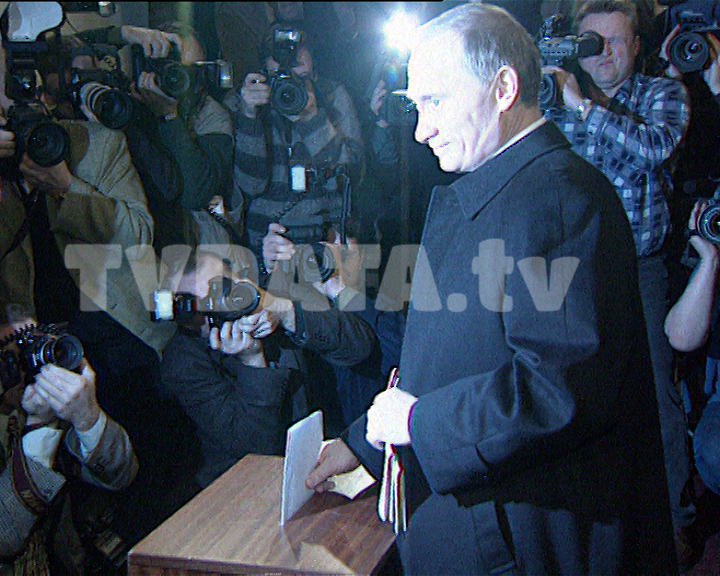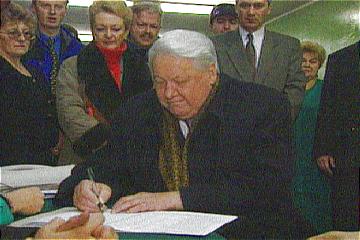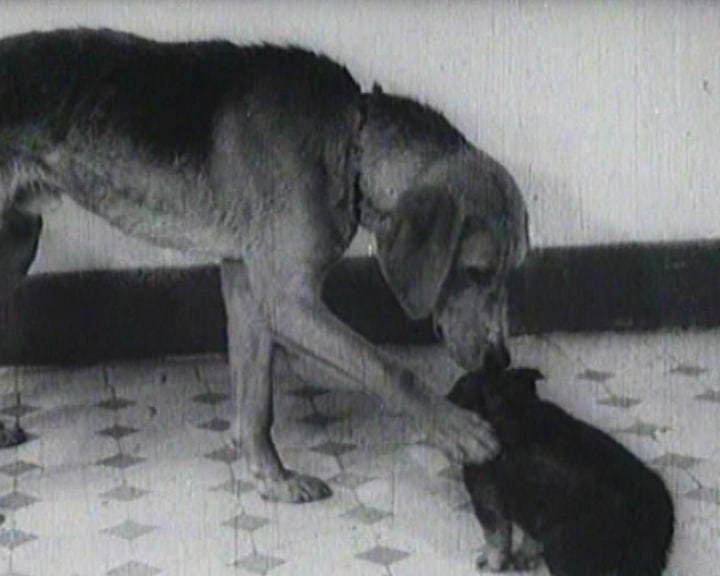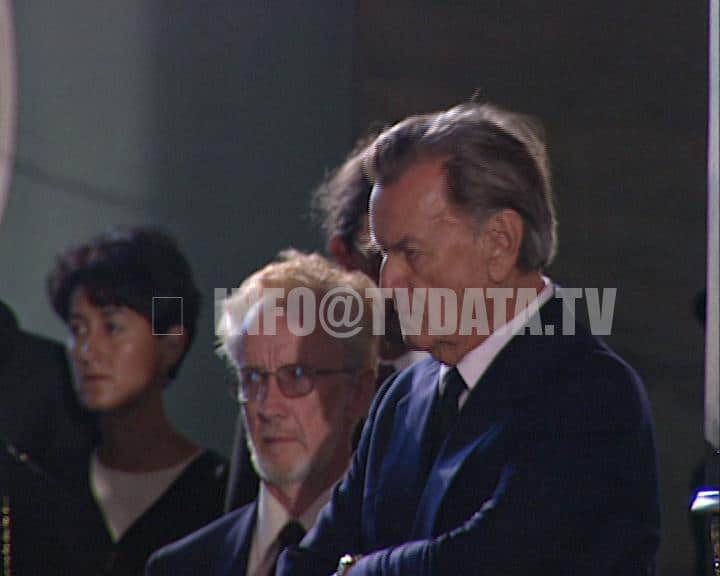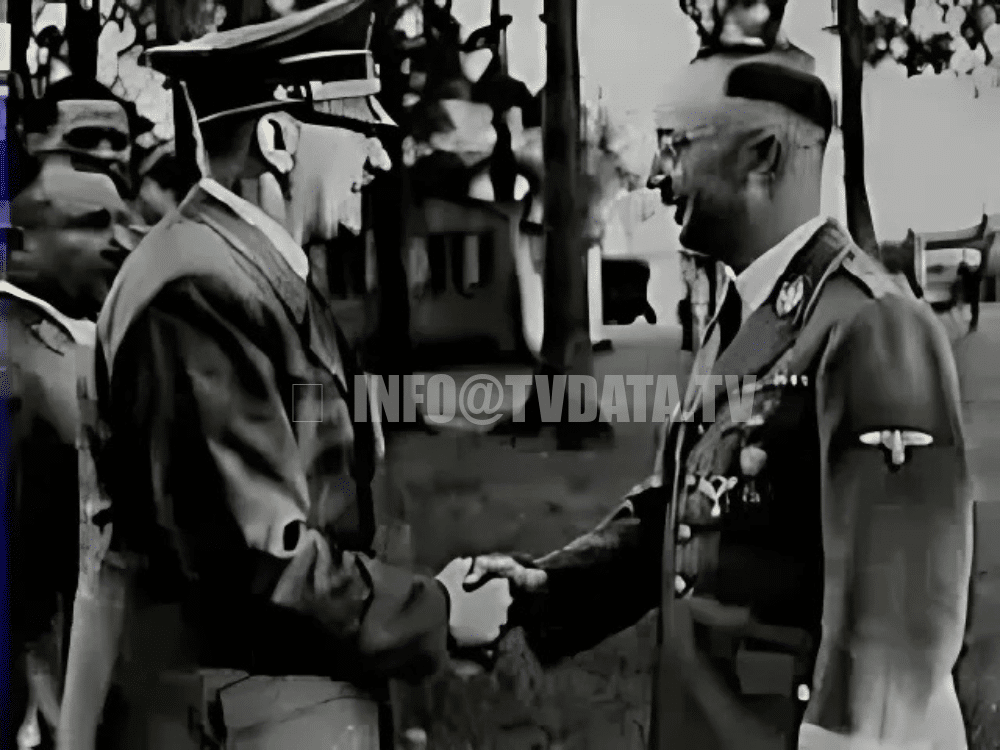We hold rare Chernobyl footage that shows the brutal reality faced by firefighters and liquidators in the disaster’s aftermath. The images are severe—radiation burns, bodies broken by exposure—but we share them for history, not spectacle.
This material exists to document their sacrifice, not to shock or exploit. Out of respect for the dead and their families, we restrict full access to researchers, journalists, and filmmakers working on serious projects.
If you require this footage for ethical documentation, contact us at info@tvdata.tv with credentials and intent. Sensationalists need not apply.
The Devastation of Extreme Radiation Exposure Archival Footage
This archival Chernobyl video reveals the effects of extreme radiation exposure on first responders.
A darkened, partial image of a firefighter’s uniform—no faces, no graphic details, just enough to evoke the weight of history.
This footage documents the horrific effects of extreme radiation exposure on Chernobyl first responders—graphic, unflinching, and historically critical. These images show what happens to the human body when exposed to lethal doses of radiation: skin peeling, tissues breaking down, systems failing.
We preserve this material not for shock value, but as evidence of the sacrifices made to contain the disaster. Out of respect for the victims and their families, access is restricted to researchers, medical professionals, and documentary filmmakers with legitimate educational purposes.
Serious inquiries only with project details
Request Your Preview Access Now
August 25, 1998 – Russian archival footage capturing Moscow on this date
TVDATA.TV archival footage capturing Moscow on this date. Rare 1990s visuals, perfect for documentaries, historical projects, or media productions seeking authentic period imagery.
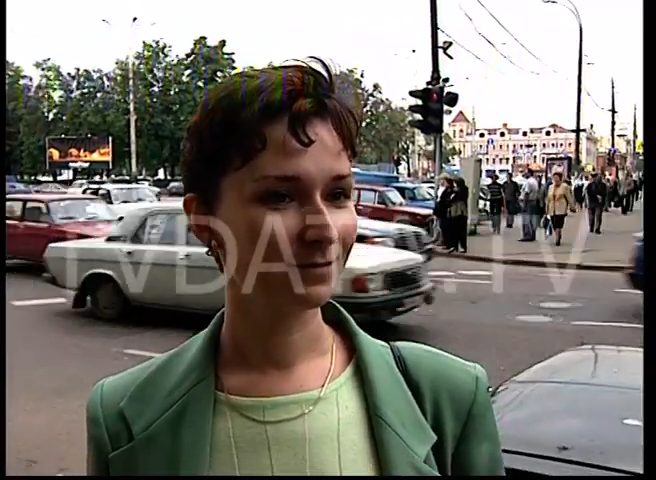
August 25, 1998 – Moscow, Russia
“I exchanged dollars,” said one man, adding that banks currently have almost no currency available.
Attempts to cash American Express traveler’s checks were unsuccessful, he noted. Many people are reportedly trying to convert their rubles into more stable currencies due to uncertainty over the future.
Denis, another interviewee, stated that he does not fear political upheaval personally but acknowledged broader concerns. “Even if the government tries to manage, local authorities continue business as usual,” he said, describing corruption at regional levels. He noted that financial instability has little impact on his daily life.
Andrey from Kazakhstan observed that the dollar exchange rate has been volatile in recent days, blaming economic instability and government manipulation. He said the financial crisis mainly affects small businesses and commercial enterprises, while ordinary citizens feel less immediate impact.
Several pensioners expressed worry about rising prices and the potential for social unrest. “If salaries are delayed, demonstrations could occur,” one said, warning of a “hot autumn” if economic conditions continue. Others emphasized that reforms and government promises have often failed to produce tangible improvements, citing inflation and corruption as persistent issues.
The interviews reflect a mix of anxiety and resignation, highlighting the difficulties Russians face amid a volatile currency market and broader economic uncertainty.
An English translation of the transcript you provided by Russian-english.com.
0:00:09.971 – 0:00:10.600
[music]0:00:10.600 – 0:00:29.800
[applause]0:02:17.120 – 0:02:24.480
Let me ask you a question. Have you exchanged dollars or rubles recently?
I exchanged.
0:02:24.480 – 0:02:32.760
I exchanged dollars. Yes. Do you think the dollar rate won’t rise anymore?
Well, certainly, I can’t make any predictions. I know that at Sberbank, there’s almost no currency—
0:02:32.760 – 0:02:37.080
no dollars, no rubles. It’s very hard to get cash. I tried to cash an American Express travel check,
but I couldn’t.
August 25, 1998 – Russian archival footage capturing Moscow on this date
0:02:37.080 – 0:02:43.160
Do you think many people are selling rubles instead?
As far as I understand, people are trying to buy dollars, because it’s unclear what will happen next.
0:02:43.160 – 0:02:52.880
Everyone is trying to convert their money into a more stable currency. Do you think the government could fall because of this?
Well, I’d like to believe what clients and people are saying, but from my experience today, these words aren’t confirmed.
0:02:52.880 – 0:03:05.120
As far as I remember, representatives from the Central Bank assured us that all currency operations would continue. Even Sberbank, which is closely tied to the state,
0:03:05.120 – 0:03:12.240
doesn’t hold any currency. Do you have a family?
No. Are you afraid that some political events could happen?
No, probably not.
0:03:12.240 – 0:03:16.920
What’s your name? Denis.
Denis, thank you.
0:03:16.920 – 0:03:28.800
No rubles. Do you think the dollar will rise in the coming days?
[music segments omitted]
0:06:32.320 – 0:06:37.200
Well, you know, I don’t really think about it. I’m from the provinces, and we don’t pay much attention. We get paid in rubles monthly, and that’s what matters.
0:06:42.920 – 0:06:51.280
Do people exchange rubles for dollars to get something more stable?
Yes, they do, quite a lot. But I think if authorities got things in order and the tax service cracked down on the bosses…
0:06:51.280 – 0:07:05.640
…then the government’s role in this crisis would be clearer. I don’t blame them—what can they do when local administrations run things the old way?
0:07:05.640 – 0:07:34.080
You just need to look around any city, see what kinds of dachas the leaders build, and you’ll understand. Most decisions get lost at the local level. In the capital, we don’t see much. What’s in the newspapers doesn’t reach us; corruption continues.
0:07:34.080 – 0:08:04.440
Financial crises don’t affect the provinces much. Do you think so? I don’t follow it, so I can’t say. And I’m not speaking for Russia’s future. I want my children to live in a reasonably calm country. It would be nice if the economy were better too. When we grew up, there was at least some perspective—you studied, you got a job. Now it’s harder; each person must rely on themselves.
0:08:04.440 – 0:08:45.440
What’s your name? Andrey. Thank you. You bought anything in Moscow? No, we’re visiting. Did you feel the dollar rate changing? Not yet, we just arrived by train. Have you heard it changed a lot in the last two days? Yes, because the country is in disorder. The economy is unstable. The government manipulates the rate: today it drops, tomorrow it rises. Ordinary people might not notice, but officials profit from it.
0:08:45.440 – 0:09:51.240
There’s a big difference between southern Russia and central Russia, e.g., Moscow and Sochi—very different dollar prices. If you go to an exchange office, they might buy at 6, sell at 9. Financial markets fluctuate; dollars fall or rise. Do you think people’s lives will worsen next week because of the financial crisis? Of course. It affects unemployment, prices for gas and food. Who suffers most? Small business owners suffer most. Ordinary people at the lower levels suffer less.
0:09:51.240 – 0:11:07.360
Do you think the government should resign? Maybe change some finance officials or tell them to stop “playing games.” Millions suffer while they manipulate currency.
0:11:07.360 – 0:11:59.000
The dollar is expensive for businesses, too. Prices rise—flowers cost 200–300 rubles more. We pay in rubles, not dollars. Financial crises are hard for businesses; customers still buy, but losses happen.
0:11:59.000 – 0:13:06.320
Andrey, do you follow economic news? Not much. Do you notice the dollar rate changing? Yes, but it doesn’t scare me. Will you buy dollars? No. Do you think this is a real financial crisis? Probably, yes. Will it affect your life? For me, no. For pensioners, yes—their prices rise. People are helpless; they can’t change the situation. Could there be a revolution? Possibly, but unlikely.
0:13:06.320 – 0:16:46.560
[many segments describing local reactions, inflation expectations, distrust in government, difficulties with currency exchange, and opinions on leadership]0:16:46.560 – 0:17:03.280
Do you fear the financial crisis affecting your life?
Not for me personally, because my income is in dollars. But 20 million people earn in rubles and will feel the impact.
0:17:03.280 – 0:17:38.720
The currency corridor was expected, but the ruble rose faster than expected. Forecasts: the dollar could reach 9 rubles. People doubt that changing the government will improve the economy, because structural problems are beyond individual leaders.
0:17:38.720 – 0:18:01.040
No clear presidential candidate is available to fix the issues. Seven years of reforms led to instability. Many ordinary people feel corruption is rampant, like historical “robber barons” in the U.S.
0:18:01.040 – 0:20:10.480
[many segments of interviews with tourists and locals expressing distrust of government, financial instability, desire for stronger leadership, and concern about inflation]0:20:10.480 – 0:21:00.840
People regret not exchanging rubles for dollars sooner. They feel the government’s promises are unreliable; currency fluctuations continue.
0:21:58.680 – 0:25:31.200
[music and short clips of cash machines, currency attempts, and discussions of oil and gas prices, business stability, and hope for improvement]August 25 1998 Russian archival footage
The video shows Russians talking about rising dollar rates and financial instability. Many struggle to get cash and worry about the ruble’s falling value. People try to convert rubles into stable currencies, but banks limit access. Visitors from other regions notice price and exchange differences. Ordinary citizens feel the effects more than officials.
Interviewees complain about corruption and opaque government decisions. Small businesses and pensioners suffer most. Prices for goods and services rise fast. Many think structural problems run deep. Trust in authorities is low.
Some residents feel safer if they earn in dollars. Still, uncertainty worries everyone. People fear inflation, economic collapse, and social instability. They hope for reforms but doubt real change will come.
Russian-English.com offers professional subtitles translation services for feature films and documentaries. Their process involves defining precise time codes for each subtitle, ensuring accurate synchronization with the video. Given that Russian dialogue often exceeds English in length, translators may condense the text to fit the timing constraints. This approach maintains the video’s pacing and viewer comprehension.
The translation process is not automated; human translators review and edit the content to preserve the original meaning, tone, and context. They consider regional dialects and colloquialisms to ensure authenticity. This meticulous attention to detail enhances the quality and relatability of the subtitles.
Additionally, Russian-English.com provides services to add subtitles directly to videos using software like Adobe Premiere Pro CC. They offer various caption styles, including open or closed captions, with customizable fonts, sizes, and colors. This post-production work is handled by their partner studio, TVDATA.TV, ensuring professional-quality results.
For more information or to request a quote, visit their Subtitles Translation for a Feature Film or a Documentary page.
1990s Abkhazia footage: Post-War Poverty and Interviews
Description:
Gritty footage from the unrecognized state of Abkhazia in the years after the 1992-1993 war. Scenes show civilians navigating life amidst ruins, trading in local markets, and voicing strong anti-Georgian sentiments. Interviews reveal the human cost of the conflict, the impact of the Russian border closure, and a pervasive sense of economic despair. A compelling visual document of a frozen conflict.
Keywords:
Abkhazia, Post-War, Poverty, Interview, Civilian, Market, Ruins, Sukhumi, Georgia, Russia, Blockade, Frozen Conflict, Separatism, 1990s, Archive, Documentary B-Roll.
Preview stock footage filmed in 1990s in Abkhazia
Mikhail Gorbachev’s Residence – 1991
Video Description: Mikhail Gorbachev’s Residence – 1991
Title: Soviet Leader Under House Arrest – Gorbachev’s Crimean Dacha, August 1991
Description:
This evocative footage captures the Foros State Dacha in Crimea during the August 1991 Soviet coup d’état, the secluded residence where President Mikhail Gorbachev was held under house arrest. The images depict the villa and its heavily guarded grounds, serving as the stunning prison for the man who oversaw the nation’s transformation.
The tape reveals the stark contrast between the luxurious, isolated compound and the grave constitutional crisis unfolding within. As the Soviet Union teetered on the brink of collapse, this location became the epicenter of a power struggle that would alter the course of the 20th century. The footage encapsulates the dramatic isolation of a world leader, cut off from command as his own government turned against him.
Ideal for use in: Documentaries on the Cold War, the collapse of the USSR, and 20th-century political history. Essential for profiles of Mikhail Gorbachev, Boris Yeltsin, and the key figures of the 1991 coup.
Keywords: Mikhail Gorbachev, August Coup, 1991, USSR, Soviet Union, collapse, Cold War, house arrest, Foros Dacha, Crimea, residence, communist, history, Boris Yeltsin, GKChP, stock footage, archival.
Vladimir Putin appearing “full of joy” during the 2004 Presidential Election – Polling Station & Voter Activity
This powerful archival footage captures former Russian President Boris Yeltsin during the 2004 presidential election, a highly symbolic appearance that served as his definitive public endorsement of incumbent Vladimir Putin. Yeltsin, the architect of post-Soviet Russia, used this moment to anoint his successor visually, transferring the mantle of leadership and granting Putin an invaluable seal of legitimacy from the man who started the new Russian era. His deliberate presence at the polls was a calculated political act, designed to frame Putin’s reign not as a break from the past, but as the stable and legitimate continuation of Yeltsin’s own project.
The footage is indispensable for narrating the complex political transition from the chaotic 1990s to the centralized power of the 2000s. It provides essential B-roll for documentaries exploring modern Russian history, features on political strategy and legacy, and analytical pieces on the cultivation of political power. This clip is not merely a historical record; it is a visual document of a calculated endorsement that helped solidify a political dynasty, making it a critical asset for any project covering this era.
A series of shots capturing the formal and public aspects of the 2004 Russian presidential election, showing voters participating in the democratic process at a typical polling station. In 2004, his popularity was at a genuine peak, and his victory was seen as inevitable for reasons that were, at the time, largely positive.
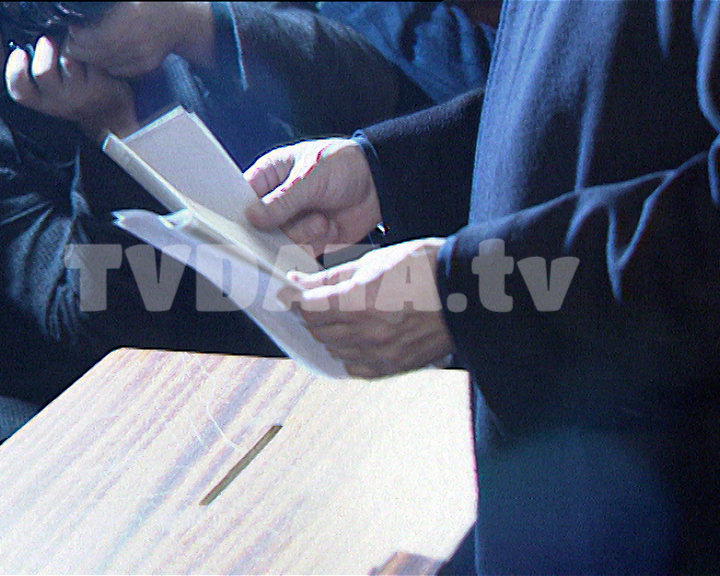
This footage package provides a visual narrative of election day in Russia, suitable for news broadcasts, documentaries, and political analysis pieces.
Meanwhile, as Putin consolidated political power, a parallel economic transformation was underway. in 2000, Russia was still recovering from the 1998 financial crisis. By 2004, thanks largely to rapidly rising oil and gas prices, the Russian economy was booming. Living standards were visibly improving for many.
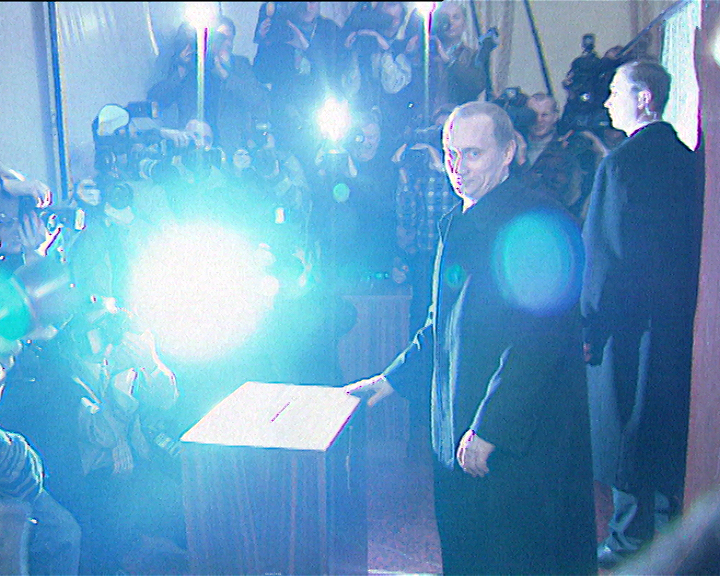
President Putin appearing solemn yet resolute as he votes at a Moscow polling station. The sequence embodies his public image as a stalwart leader during a national crisis, framing the election as a mandate for his security-focused agenda. Shots include his arrival, interaction with election officials, and the deliberate act of depositing his ballot.
Russia President Putin Votes Following Beslan – 2004 Election
Preview this Rights-managed (RM) footage capturing Russian President Vladimir Putin casting his ballot in the 2004 presidential election. This significant political moment followed the devastating Beslan school siege.
Key visual elements include:
President Putin appearing solemn yet resolute as he votes at a Moscow polling station. The sequence embodies his public image as a stalwart leader during a national crisis. HE IS framing the election as a mandate for his security-focused agenda. Shots include his arrival, interaction with election officials, and the deliberate act of depositing his ballot.
Ideal for use in: documentaries on modern Russian politics, features on counter-terrorism policy, historical retrospectives on Putin’s rise to power, and analyses of post-Soviet elections and political strategy.
Yeltsin’s presence in 2004 was not that of a mere former president, but that of a key political symbol. He was used—and likely willingly so—as the ultimate validator of Putin’s rule, providing a crucial bridge of legitimacy from the turbulent birth of post-Soviet Russia to the consolidated, powerful state it was becoming under Putin.
